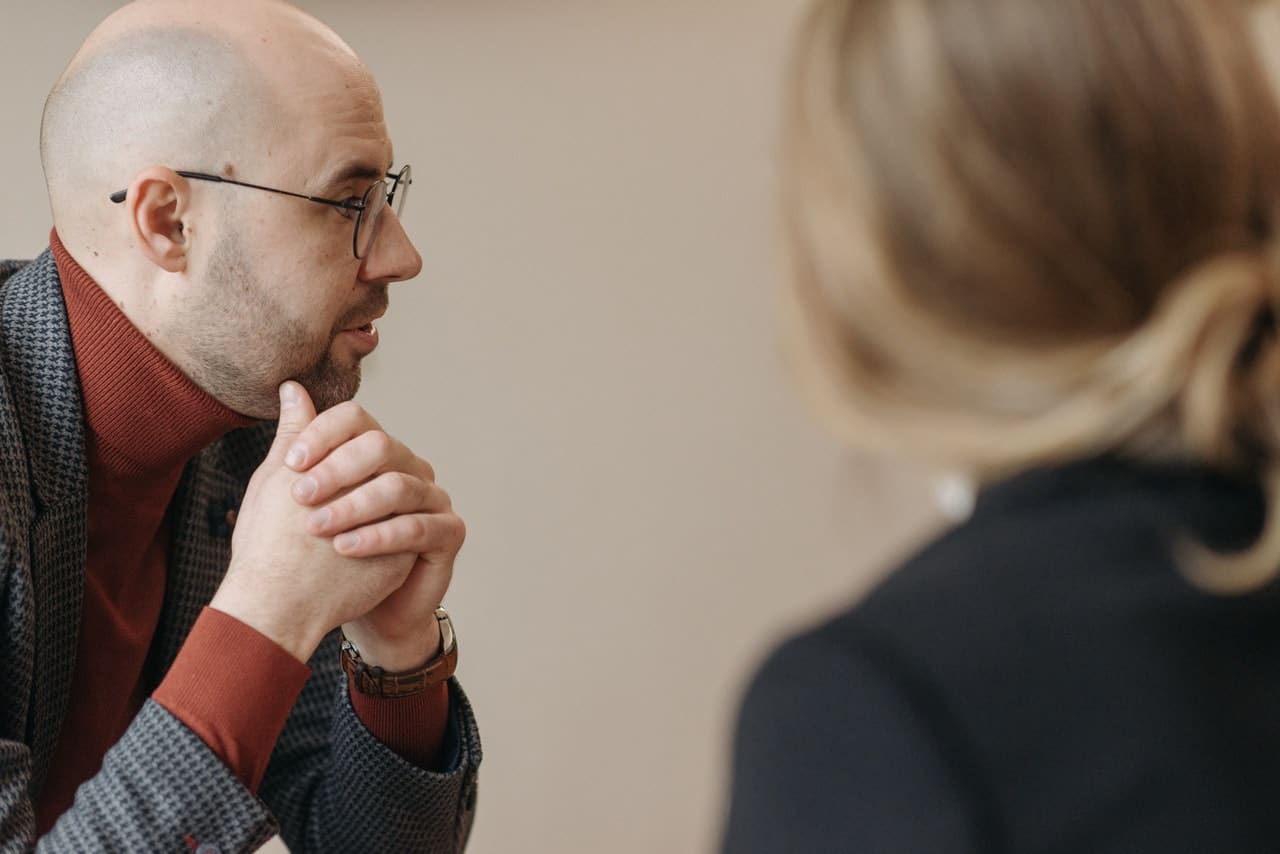The feeling of watching the last splendors of youth flush down the pipe with every new hair that falls inside your bathtub. The progressive thinning and recession. The cold, silent fear of not being able to find a partner. The loss of confidence and personal identity, the psychological damage. That is androgenic alopecia.
I remember thinking: if we can travel to the moon, transplant hearts, make the blind see and the deaf hear, we surely can reverse hair loss, can we not?
When I began losing my hair, following a long-standing family tradition, I desperately tried every growth method I read about on the internet: diets, oils, minoxidil –– heck, I even tried yoga.
IMAGE: PEXELS
I remember how my grandfather used to smile at me desperately searching for a new hair loss treatment every time I went to visit him. ‘There is only one thing that keeps hair from falling’, he said, with an ironic smile. I turned to him suddenly hopeful, silently waiting for the revelation to come out of his lips like water from the desert, only to hear him say: ‘it’s the ground!’
My grandfather’s hope-shattering answer seemed more true every time I tried a new hair loss method. The whole spirit of his generation resonated in his response: the resignation of the man who endured the miseries of the after-war period, a certain old-school masculinity, an apparent disregard for physical appearance. That was to be my fate, too. I must embrace it, I thought: I must be like my grandfather.
It took me a while to realize that, fortunately, he was wrong. We can travel to the moon, we can transplant hearts, we can make the blind see, the deaf hear, and we can actually keep hair from falling.
Best Alopecia Treatment
Rest assured, this is not an article about dieting or relaxation techniques. I assume your hair loss is somewhat more serious. This is an article about proven, effective methods of fighting hair loss, with all the advantages and disadvantages they come with. They have all been tested on a reliable lab rat: myself. I have searched about the Alopecia Treatments and I narrowed the list down so you don’t waste any time trying useless methods.
Here is my philosopher’s stone, ridden of all impurities.
Multivitamins
First, the easiest and less radical option. To be sure, vitamin supplements are relatively ineffective if they are not combined with other hair growth treatments. Despite this, a greater vitamin dosage will help retention processes and cell turnover. It will also have the psychological effect of reassuring you by taking action and calming you down (stress does increase hair loss). Also, vitamins are good for you anyways.
Hair growth can be stimulated with selenium, zinc, iron, and vitamins A, B, C, and D. Vitamins H and B7 are not so easily found in drugstores or groceries as the former (or without prescription), but they are also key in the hair growth process.
Minoxidil
Minoxidil is a pharmaceutical drug found in 2% and 5% solutions, both in liquid and foam form. Minoxidil has indeed proven to be an effective way of stimulating growth and preventing further hair loss in certain patients. There are a series of bad sides to it, though.
- Minoxidil does not work for most people. According to medical research, hair loss is only stopped in 50% of patients, whereas only a very small percentage of users experience any kind of hair regrowth.
- The immediate effects of Minoxidil include an initial, rapid hair loss. So, not only it might not work for you, but it may also accelerate hair loss.
- Minoxidil is quite an expensive product, and hair loss will resume as soon as you stop using it, meaning you will be dependent on it for the rest of your life.
So, should we look at another alternative?
Hair Transplantation
According to MCAN Health hair transplantation is a proven way of reversing baldness through a process of hair reallocation (taking hair from the areas of higher density of the scalp to the receding or bald areas). Depending on the hair loss stage you find yourself at, you might need one or more surgical interventions to fully cover your balding area.
The bad side of hair transplantation is that it is quite expensive depending on where you want to get it done. The good side of it is that results are permanent and you will not need to take any products after the surgery.
However, understanding the differences in finasteride vs dutasteride treatment can be valuable for those considering non-surgical options or looking to maintain their results post-surgery.
Laser therapy
Laser therapy is one of the newest techniques to thicken hair density. With the use of low-intensity lasers, this kind of therapy stimulates stem cells to boost hair regrowth. The good side of it is that you can buy laser devices and have them at home for self-treatment. They cost an average of 200 to 600 USD, so they are pretty affordable too. The bad side is that it may take many sessions before you see any results. Not for the impatient ones.
PRP
Platelet-rich plasma, also known as PRP, is another natural way of stimulating hair regrowth. It is basically injecting your own blood back into the scalp once the rich plasma content of the blood has been isolated. PRP is often operated simultaneously with hair transplantation surgery. The bad side to it is that it includes a number of risks, such as infection, calcification, and injury to blood vessels. Also, it may not be effective depending on the patient. The good side to it is that it is fully natural and generally shows positive results.
Good Life Habits
I promised not to mention anything about it, but… It goes without mention, any of the above treatments should be combined with healthy life habits. For example, alcohol and cigarette consumption should be minimized, a healthy diet should be maintained, and activities to reduce stress, such as sports, and yes, yoga, are recommended. All of these things are good for you anyways, whether you want to stop your hair from hitting the ground or getting that confidence you’re after.
Finally, this one’s for you, my bald or balding brother: it does not matter what situation you find yourself in…always remember: women love bald men.


COMMENTS